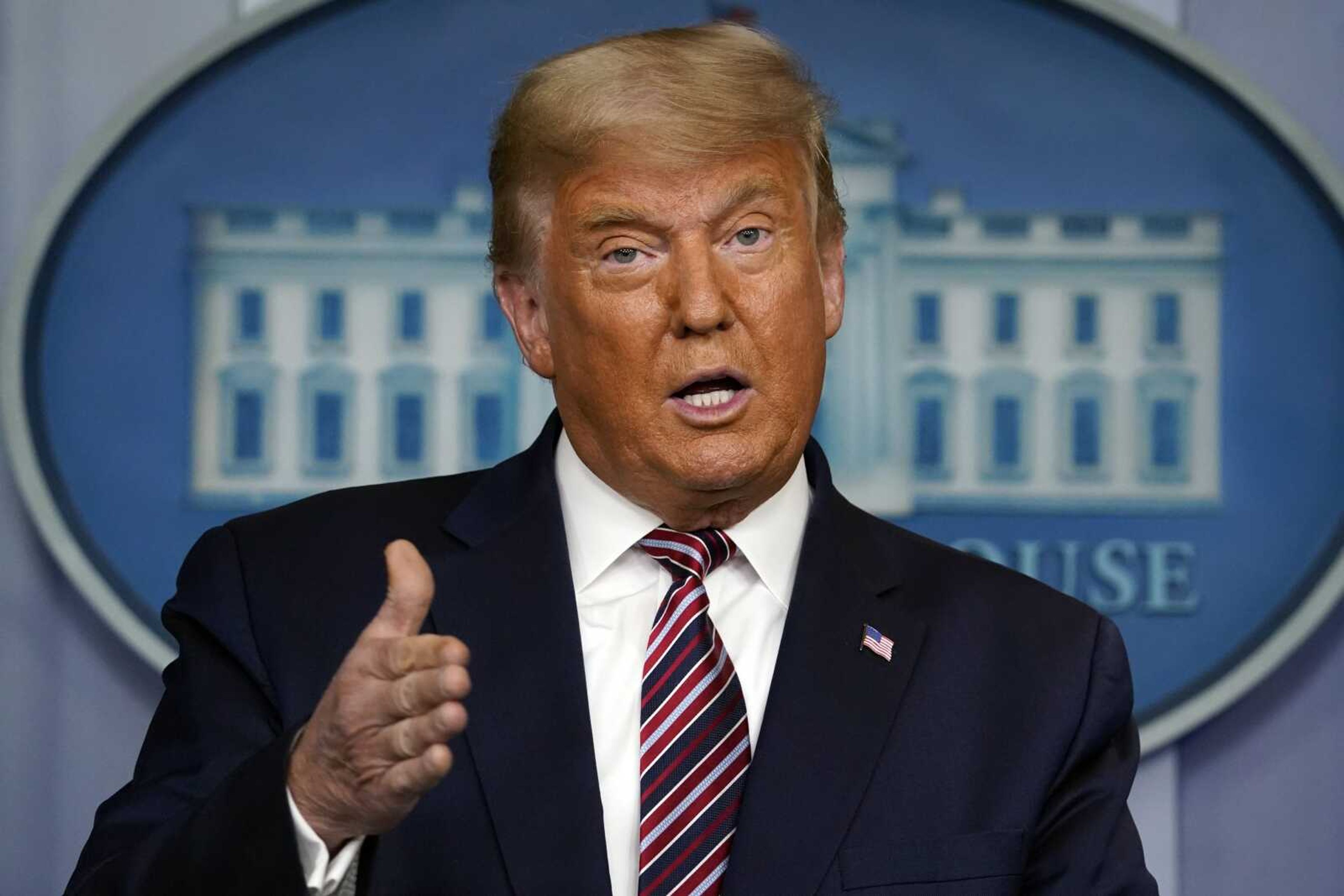Court fight looms as questions swirl over Trump's finances
NEW YORK -- Questions about Donald Trump's business practices are piling up. Whether the former president is forced to answer any of them under oath could be decided in a matter of days. New York's attorney general will go to court Thursday seeking to enforce a subpoena for Trump's testimony in a civil investigation she says uncovered evidence his company used "fraudulent or misleading" valuations of golf clubs, skyscrapers and other properties to get loans and tax benefits...
NEW YORK -- Questions about Donald Trump's business practices are piling up. Whether the former president is forced to answer any of them under oath could be decided in a matter of days.
New York's attorney general will go to court Thursday seeking to enforce a subpoena for Trump's testimony in a civil investigation she says uncovered evidence his company used "fraudulent or misleading" valuations of golf clubs, skyscrapers and other properties to get loans and tax benefits.
The hearing, before state Judge Arthur Engoron in Manhattan, is the next step in a legal battle that has unfolded in court papers over the last few weeks, including the revelation Monday that Trump's longtime accounting firm recently dumped him after warning that financial statements it prepared could not be trusted.
Trump's lawyers had argued those financial statements were truthful, and attempts to pick them apart over what they characterized as minor mistakes or omissions were politically motivated.
Trump issued a lengthy statement Tuesday night alleging the accounting firm, Mazars USA LLP, cut ties with him because it had faced "vicious intimidation tactics" from authorities investigating him.
In a letter posted to the court docket as evidence, Mazars urged the Trump Organization on Feb. 9 to inform anyone who'd been given his Statement of Financial Condition, such as banks and insurers, that "those documents should not be relied upon."
The accounting firm said that while it hadn't found "material discrepancies" in reviewing the documents, it said the "totality of the circumstances" made it imprudent to use them going forward.
The Associated Press contacted several of Trump's lenders to see what, if any, effect the Mazars letter would have on Trump's existing financial arrangements, including the hundreds of millions of dollars worth of loans investigators said were secured using the Statements of Financial Condition. They either didn't respond or declined to comment, citing policies barring them from speaking about clients.
Trump, in his statement Tuesday, said his net worth is "approximately $8 to $9 billion" based on the value of his brand and "current enthusiasm and transactions which have or will take place," far higher than recent estimates in financial publications. Forbes, whose editor testified before a grand jury investigating Trump, pegged his worth at $2.5 billion as of last September.
Trump went on to praise his company's "fantastic assets that are unique, extremely valuable and, in many cases, far more valuable than what was listed in our Financial Statements."
Attorney General Letitia James said in a statement previewing Thursday's arguments that given the evidence, including Mazars' findings, "there should be no doubt that this is a lawful investigation and that we have legitimate reason" to question Trump under oath.
Trump's lawyers pointed to Mazars declaration that it hadn't found any substantial discrepancies in the documents as more evidence the former president's company did nothing wrong.
The same legal fight also involves subpoenas James issued to Trump's two eldest children, Ivanka and Donald Trump Jr., both trusted allies of their father who've been executives in their family's Trump Organization.
In challenging the subpoenas, lawyers for the Trumps argue any testimony they give in James' civil probe could be then used against them in a parallel and sometimes overlapping criminal investigation -- although they could invoke their Fifth Amendment right to remain silent, as others in Trump's orbit have.
James' investigation itself is civil in nature, meaning she could bring a lawsuit and seek financial penalties against Trump or his company, or even a ban on them being involved in certain types of businesses, as happened last month when a judge barred ex-drug company CEO Martin Shkreli from the pharmaceutical industry for life. Court documents indicate James has at least until April to decide on whether to take legal action.
Engoron, the judge hearing Thursday's arguments, previously sided with James on other matters relating to the probe, including making another Trump son, Trump Organization executive Eric Trump, testify after his lawyers abruptly canceled a scheduled deposition.
Eric Trump and Trump Organization finance chief Allen Weisselberg each invoked the Fifth Amendment more than 500 times when questioned by James' lawyers during separate depositions in 2020, according to court papers.
Last summer, spurred by evidence uncovered in James' civil investigation, the Manhattan district attorney's office charged Weisselberg and the Trump Organization with tax fraud, alleging he collected more than $1.7 million in off-the-books compensation, including apartment rent, car payments and school tuition. Weisselberg and the company have pleaded not guilty.
Trump has responded to both New York investigations by decrying the probes as part of a partisan "witch hunt." Both James and Manhattan District Attorney Alvin Bragg are Democrats.
Last year, Trump lost a multiyear fight to block the DA's office from obtaining his tax returns. In December, he sued James in federal court, seeking to put an end to her investigation.
In court papers ahead of Thursday's hearing, Trump's lawyers doubled down on his contention that James was after him for political purposes, writing that she had "relentlessly targeted" Trump, his family, company and associates "because of her dislike of his speech and political views."
Follow Michael Sisak on Twitter at twitter.com/mikesisak
Connect with the Southeast Missourian Newsroom:
For corrections to this story or other insights for the editor, click here. To submit a letter to the editor, click here. To learn about the Southeast Missourian’s AI Policy, click here.









